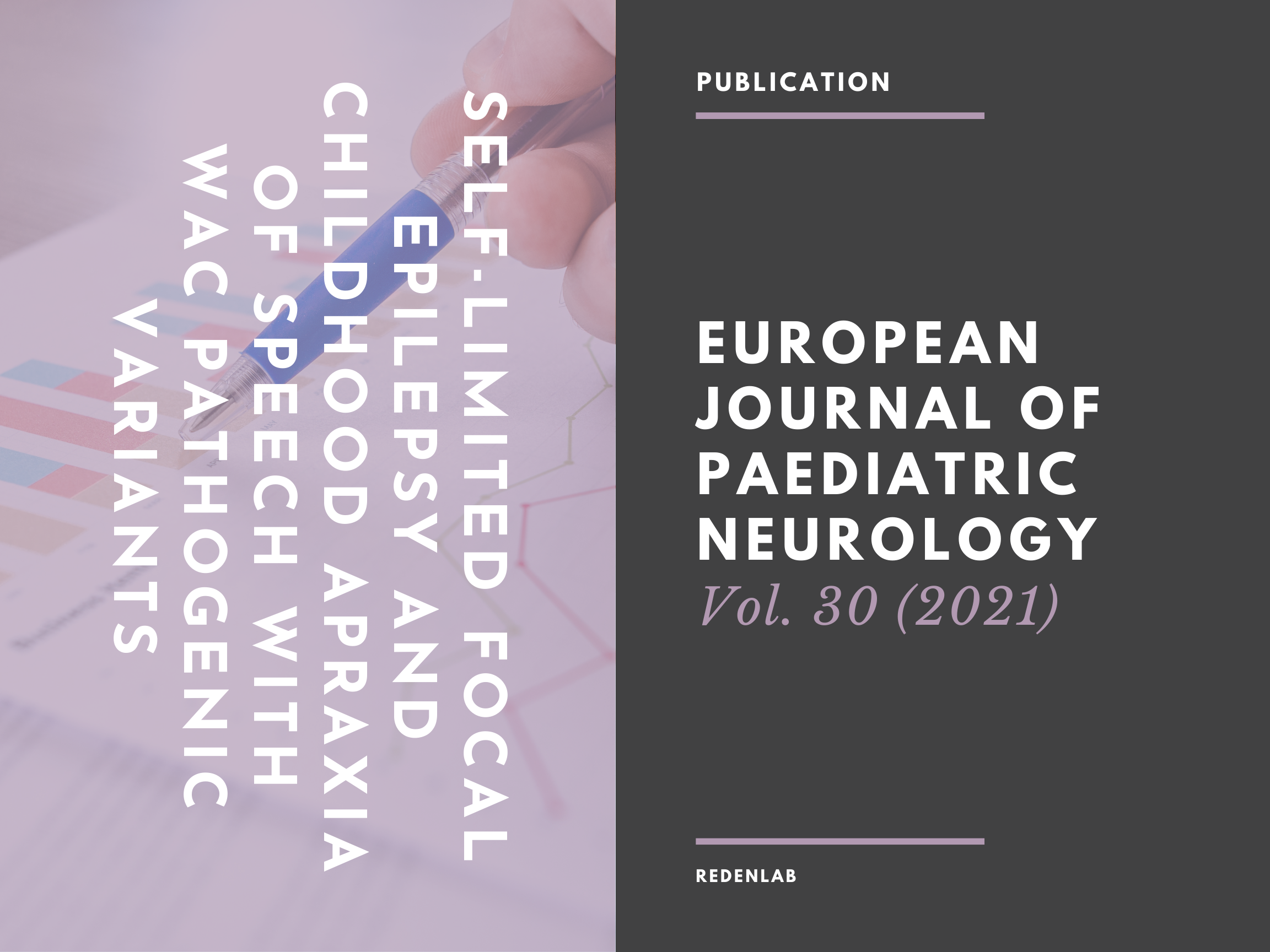Self-limited focal epilepsy and childhood apraxia of speech with WAC pathogenic variants

Highlights
• Four children with heterozygous WAC pathogenic variants and epilepsy are described.
• All children had global developmental impairment with language most severely affected.
• Two children had childhood apraxia of speech and 2 had autism spectrum disorder.
• Seizures were self-limited in 2, and controlled on monotherapy in the other 2.
• Seizures were typically focal from sleep; onset age ranged from 6 months to 14 years.
Abstract
Heterozygous pathogenic WAC variants cause Desanto-Shinawi syndrome; affected patients have dysmorphic features, developmental impairment and behavioral abnormalities. Seizures are reported in one quarter, including tonic-clonic, absence, and febrile seizures. This study aimed to better understand the phenotypic spectrum of epilepsy and development in Desanto-Shinawi syndrome. We identified four children with seizures and pathogenic WAC variants, including two siblings. All had global developmental impairment with language affected most severely; two had diagnoses of childhood apraxia of speech and two had autism spectrum disorder. Seizure onset age ranged from six months to 14 years. Seizures always occurred from sleep and were focal impaired awareness with motor features in three patients, with one having bilateral tonic-clonic seizures of suspected focal onset. Two patients had spontaneous seizure resolution without treatment, and the remaining two were well-controlled on monotherapy. EEG was normal in two patients; one had focal right frontal spikes in drowsiness and sleep while the last had independent centrotemporal spikes from both hemispheres, activated in sleep. All patients had heterozygous truncating pathogenic WAC variants, with negative parental testing. The findings in this cohort of patients suggest that epilepsy in Desanto-Shinawi syndrome is usually focal and self-limited, and may fall within the epilepsy-aphasia spectrum.
Click here for more details
